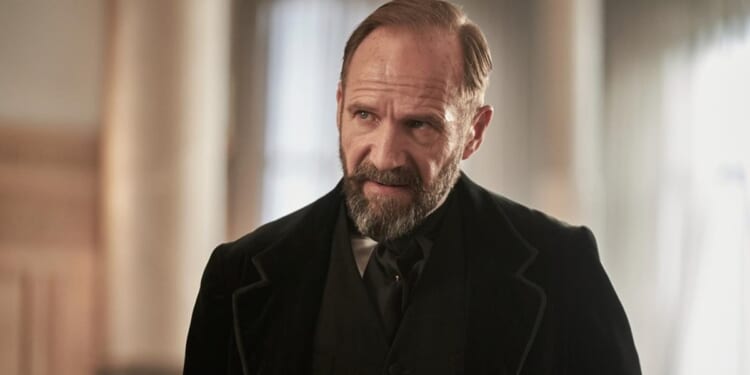SET in 1916, when Christianity was enlisted in support of jingoism, The Choral (Cert. 12A) concerns Ramsden, a Yorkshire village low on male singers. Alan Bennett’s script — his first since Prick Up Your Ears (1987) not to have been originally a play — is funny and affecting.
The mill owner Alderman Duxbury (philanthropic like Titus Salt, whose model village, Saltaire, serves as the film’s main location) is played by Roger Allam. Beneath a braggadocious exterior lies a profound sensitivity. He finances the choir and is tenor soloist. The Choral holds Ramsden together as First World War casualty notifications are delivered by Lofty (Oliver Briscombe). He and his mates expect call-up soon, which hastens their efforts to carouse in the mean time. So, meeting a pretty girl, Mary (Amara Okereke) in her Salvation Army uniform, they tag along to choir with her.
Salvation — whether avoiding death in the trenches or being saved from singing a German oratorio — becomes a dominant theme. Xenophobia besets the community to the extent that it even disapproves of the bakery’s selling Battenberg cakes. Henry Guthrie (Ralph Fiennes) is reluctantly tolerated as replacement choirmaster. Before the war, he had enjoyed living in Germany. Exulting in its culture is construed as unpatriotic. He overcomes the villagers’ suspicions, quoting Goethe, who counselled that worldly cares did not obliterate the sense of the beautiful which God had implanted in the human soul.
An oratorio, The Dream of Gerontius, by two Englishmen, Edward Elgar and John Newman, is deemed eminently suitable for the choir. Its references to purgatory, however, evoke ecclesiastical condemnation as contrary to Anglican teaching. But Jacob Dudman’s Clyde, who has lost an arm in action, declares: “I could take you there tomorrow.”
An unfavourable view of clerics exists throughout a film that features an excess of them in so small a parish. One, from the heights of a Ripon Cathedral canonry, declares God to be pro-war. Bennett’s screenplay grants no representation to those clergy who took a contrary view.
Nicholas Hytner, director of several Bennett stage and screen works, has previously been criticised for not really understanding the grammar of cinema. Here, the film becomes truly theatrical only in scenes in which a contemporary interpretation is placed on Elgar’s piece. Overall, The Choral suggests a God-fearing world without scrutinising whether this war has a moral justification. Instead, it uses Gerontius (a name derived from Greek for “old man”) as articulating the journey of all our souls, not just those of the elderly.
With a talented ensemble cast, the film spreads itself too thinly at times to explore any real depth of emotion. Henry’s grief that his male lover may be among the 829 Germans killed at sea is an exception. An ecstatic choir rejoices, unaware of a rare moment of real pathos, delivered by Fiennes.
The concentration is on our ultimate destiny. The final words of the film are those of the Angel’s farewell in the oratorio: “Softly and gently, dearly ransomed soul, In my most loving arms I now enfold thee.” Given Bennett and Hytner’s publicly stated agnosticism, that’s quite a grace note, fitting for Remembrance.
















